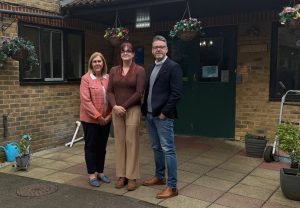Round table: Is sustainability redefining business success?

In our latest round table, sponsored by Freeths, a panel from across the East and West Midlands came together to discuss the way forward for sustainability in business.
What are the biggest challenges and opportunities facing growing businesses which want to improve their sustainability credentials?
Jason Richards: Organisations are feeling increasingly vulnerable and they are concerned with reputation management, security and pricing issues. The flipside is that they have something to work towards in the 2050 net zero carbon target and the driver towards renewables that brings.
David Brighton: Companies in my industry need to be transparent. If they have accreditations then it makes tendering easier. Having said that, changing political landscapes and the regulations they bring doesn’t help.
Simon Russell: One of big challenges is that if a company wants to be more sustainable then it requires more investment – both in the near term or longer term. This investment in the near term can be more disruptive, as companies ask themselves: how much can we do and at what pace? There seems to be an arms race to become carbon neutral at the moment, and it appears to me that some businesses or organisations are trying to work this out on the back of an envelope. We need to know we’re backing the right technology for the future as there’s a huge element of risk involved.
Emma Hopes: The market changes constantly when it comes to the value of recycling, and so with this risk apparent, long term investment can be very difficult.
Who is driving sustainability – the company or the customer?
James Larmour: The old mindset was always about price. Now, companies are reconciling financial, environmental and social concerns alongside that of cost.
Darren Edwards: We hear a lot about sustainability, but the clue is is in the word; it’s also about financial sustainability. There is a general lack of education and understanding and the majority of those who claim to be sustainable never seem to think two or three steps ahead.
Tom Beeley – We have to ask: what do people mean as sustainability.
Richard Oke – A lot of companies are still very reactive rather than proactive and I get the sense that people don’t understand sustainability. They seem to sign up without really knowing what they’re sign up to. My company does feel that it’s been proactive; packaging is very important and it’s more than just eradicating single-use plastics.
Hopes – I think it’s very much client-led. However, smaller companies can’t keep up with the trends and so we see them falling back when it comes to sustainability.
How do you feel you about government regulation – is it realistic, or does it need to go further?
Russell: Every company is different and I think there needs to be a framework rather than anything too prescriptive.
Karen Roberts: The regulation feels a bit kneejerk. If it’s high on political agenda then there is a temptation to want to implement very quickly without giving thought to what will happen in 50 or a 100 years.
Richards: While larger companies can afford the investment in tech to meet Government regulations, it’s becoming harder for SMEs to keep up and tick the boxes they think they need to.
Russell: We see a lot of drive coming from clients – there are things that we want to do and there are things that the end consumer wants.
Larmour: It comes back to policymakers thinking ahead. At the moment its unrealistic and none of them have thought about how they’re going to deliver what they’re promising. Are they actually really thinking ahead?
Richards: Businesses have to be ambitious and think in the longer term if they want to show off their sustainability credentials. It’s very much the case that some companies are still only dipping their toes in the water with this.
Is the drive towards sustainability driving company culture?
Oke: Our staff have taken on board what we’re trying to do. It’s all about down to internal communication. Our investment touches on how we source our crops and package our products. For us it’s about what is right for our business. We’re not perfect, but we’re quite optimistic we’re doing our bit.
Russell: We’ve got a long track record of sustainability, so our staff have got the message. The message has got through to people and they are being made to think.
Is sustainability now ingrained in the new wave of entrepreneurs, or are we still some way from it being the default setting?
Larmour: I think there’ll be a shift away finance and profits as a means to judge the success of a business.
Brighton: I think the generation which will see sustainability as a natural thing they do is the next one. They will influence companies a bit more and buy products that are linked to sustainable products.
Roberts: I think there’s a generational gap with millennials because they weren’t aware what was going to happen and we’ve produced a generation of people that don’t care about waste. It’s a problem generation.
Panel:
Simon Russell, Aston Manor Cider
Jason Richards, Freeths
James Larmour, Freeths
Richard Oke, Sleaford Quality Foods
Karen Roberts, Go Plant Fleet Services
Emma Hopes, Go Plant Fleet Services
David Brighton, The Waste Specialists
Darren Edwards, Fisher German
Tom Beeley, Fisher German









